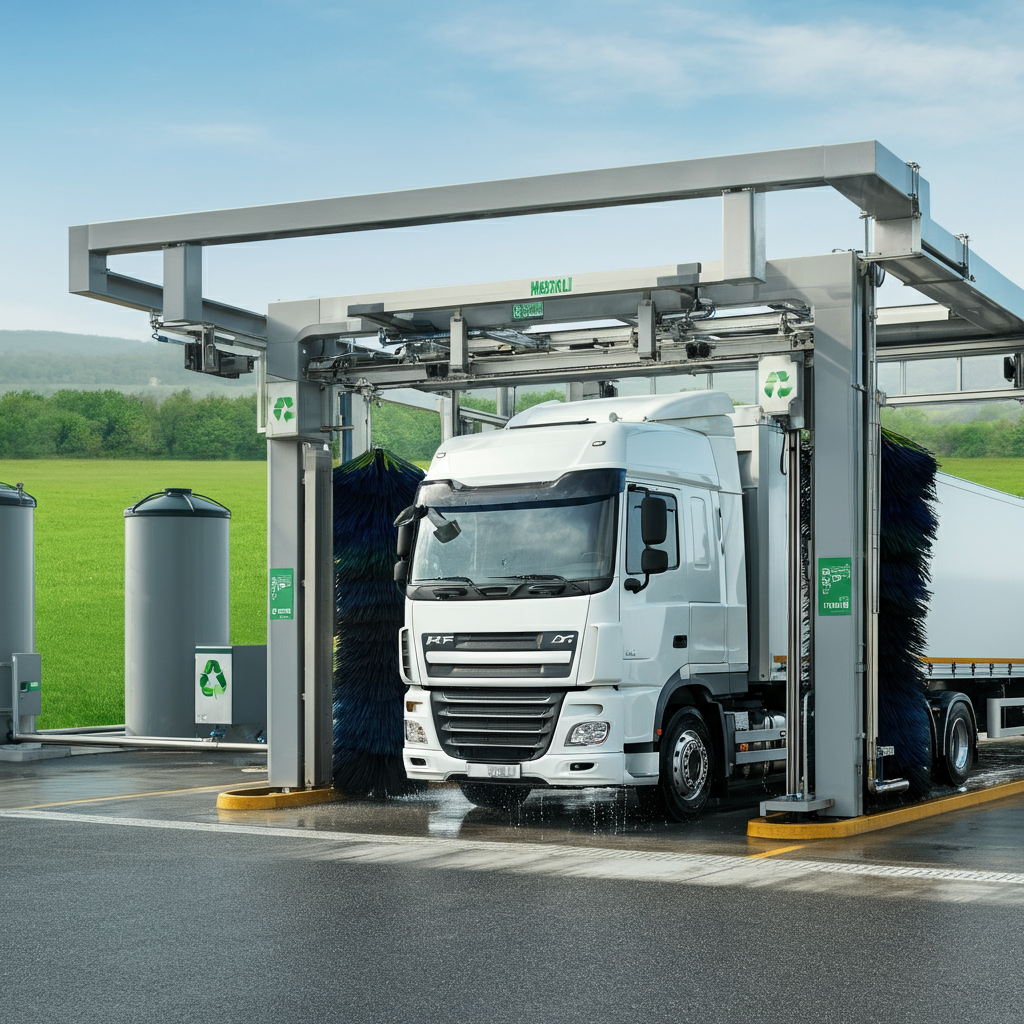Fleet management extends beyond logistics and maintenance; it now includes a growing responsibility for environmental stewardship. As companies and transit authorities face increasing pressure to adopt sustainable practices, every aspect of operations comes under review. Vehicle washing, often seen as a simple necessity, presents a significant opportunity to make a positive environmental impact. While traditional manual washing methods are notoriously wasteful, modern automated vehicle wash systems offer a powerful, eco-friendly alternative.
For environmentally conscious fleet managers, shifting to an automated system is a strategic move that aligns operational needs with sustainability goals. These systems are engineered to minimize resource consumption, control pollutants, and help your organization become a better corporate citizen.
Drastic Water Conservation Through Advanced Technology
Water scarcity is a critical global issue, and the high water consumption of manual fleet washing is a major concern. A manual wash can use hundreds of gallons of fresh water per vehicle, much of which becomes contaminated runoff. Automated systems are designed from the ground up to tackle this problem.
High-Efficiency Washing
Automated wash systems use high-pressure, low-flow nozzles that are strategically placed to maximize cleaning power while minimizing water usage. Unlike a handheld hose that runs continuously, these systems apply water precisely where and when it’s needed. The entire process is computer-controlled, ensuring an efficient and consistent wash cycle that uses a fraction of the water required for a manual clean.
Water Reclamation and Recycling
The most significant environmental advantage of automated systems is their ability to recycle water. Advanced water reclamation technology is a core feature of modern wash systems. This process typically involves a series of tanks and filters that capture, treat, and store the water from each wash cycle. The system removes solids, oils, and detergents, allowing up to 80% of the water to be reused in subsequent washes. This closed-loop approach drastically reduces your fleet’s demand for fresh water, leading to massive conservation over time and significant cost savings on utility bills.
Containing and Managing Contaminated Runoff
When vehicles are washed manually in an open lot, the runoff is a serious environmental hazard. This water, laden with detergents, oils, grease, heavy metals, and road grime, flows directly into storm drains. These drains often lead straight to local rivers, lakes, and streams, polluting waterways and harming aquatic ecosystems.
Proper Wastewater Disposal
Automated vehicle wash systems are self-contained environments. All wastewater is collected within the wash bay, preventing it from escaping into the environment. This captured water is then managed responsibly. The portion that isn’t reclaimed is routed to a sanitary sewer system, where it can be properly treated by a municipal water treatment facility before being discharged. This prevents harmful pollutants from contaminating local water sources, ensuring your operation complies with environmental regulations like the Clean Water Act.
Biodegradable Detergents
The eco-friendly benefits extend to the cleaning agents used. Manufacturers of automated wash systems often recommend or supply specially formulated, biodegradable detergents. These soaps are designed to be effective cleaners that break down naturally without harming the environment. Paired with precise, metered application systems that prevent overuse, these eco-friendly detergents further reduce the chemical footprint of your washing operations.
Reducing Energy Consumption
Beyond water and chemicals, automated systems are also designed for energy efficiency. Modern systems incorporate energy-saving components like variable frequency drive (VFD) motors, which adjust power consumption based on the load required for different parts of the wash cycle. LED lighting in the wash bay and motion-activated sensors that power down the system when not in use also contribute to lower overall energy use compared to the resources needed for a manual wash setup.
A Cleaner Fleet, A Cleaner Planet
Integrating sustainability into your fleet management strategy is no longer optional. Adopting an automated vehicle wash system is a practical and impactful step toward reducing your environmental footprint. The benefits are clear: dramatic reductions in water consumption, elimination of polluted runoff, responsible use of cleaning agents, and lower energy usage.
These systems prove that operational efficiency and environmental responsibility can go hand in hand. Whether you manage a fleet of tractor-trailers or a line of city buses, investing in the right technology protects your assets while preserving the planet. High-quality Truck Wash Equipment provides a sustainable solution for logistics and transport companies. Similarly, advanced Bus Wash Equipment allows transit authorities to meet their cleanliness standards while upholding their commitment to the communities they serve.
By making the switch to an automated wash system, you are investing not only in a cleaner fleet but also in a healthier environment for everyone.



